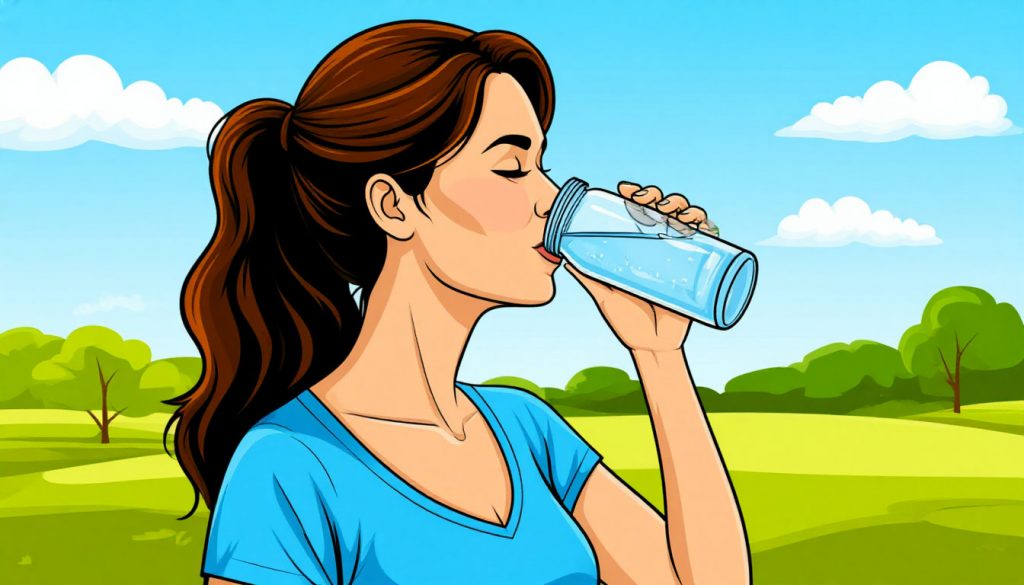Water is a transparent, tasteless, and nearly colorless liquid that is essential to all known forms of life. It covers about 71% of Earth’s surface and makes up around 60% of the human body. Despite its simple molecular structure—two hydrogen atoms bonded to one oxygen atom (H₂O)—water plays a vital role in nearly every biological process in the human body and is a foundation of our health and survival.
The Role of Water in the Human Body
Water is involved in countless physiological functions, including:
- Hydration of cells: Every cell in the body relies on water to carry nutrients and remove waste.
- Temperature regulation: Through sweating and respiration, water helps maintain a stable internal temperature.
- Digestion and absorption: It is necessary for breaking down food and absorbing nutrients.
- Joint lubrication: Synovial fluid in joints is water-based, supporting movement and reducing friction.
- Detoxification: The kidneys and liver use water to flush out toxins from the bloodstream.
Without adequate water intake, these systems begin to fail, leading to dehydration and serious health issues.
Why Humans Must Drink Water Regularly
Because the body constantly loses water through sweat, urine, and breathing, it must be replenished regularly. Unlike fat or vitamins, the body cannot store large reserves of water.
Even mild dehydration can cause symptoms such as headaches, fatigue, dizziness, and poor concentration. Severe dehydration can lead to organ failure and death.
Experts recommend drinking water consistently throughout the day—even before thirst kicks in. The commonly cited “8 glasses a day” is a general guideline, but individual needs vary based on age, climate, activity level, and health.
Water and Brain Function
The human brain is approximately 75% water. Studies have shown that proper hydration improves mood, memory, attention, and cognitive performance. Dehydration, even by just 2%, can impair short-term memory and increase feelings of anxiety and tension.
For students, professionals, and athletes alike, staying hydrated is critical for mental and physical performance.
Clean Water and Public Health
Access to clean, safe drinking water is a major global health issue. Contaminated water can spread deadly diseases such as cholera, dysentery, and typhoid. According to the World Health Organization, billions of people still lack access to safe water supplies.
Ensuring clean drinking water is not only essential for individual health but also for community development, education, and economic growth.
How to Stay Properly Hydrated
- Drink water regularly, not just when you’re thirsty.
- Eat water-rich foods like cucumbers, watermelon, oranges, and tomatoes.
- Avoid excessive caffeine and alcohol, which can dehydrate the body.
- Pay attention to signs of dehydration: dark urine, dry mouth, and lack of energy.
In hot weather or during physical activity, increase your water intake accordingly.
Conclusion
Water is not just a drink—it’s a life-sustaining force that impacts every system in the human body. Staying hydrated is one of the simplest and most effective ways to support your health, improve performance, and prevent illness. Ensuring access to clean water is also a global responsibility that protects the future of humanity.
Glossary
- Dehydration: A condition that occurs when the body loses more water than it takes in.
- Hydration: The process of supplying water to maintain fluid balance in the body.
- Synovial fluid: The fluid found in joints that reduces friction and enables smooth movement.
- Toxin: Harmful substances that can damage the body and need to be removed.


